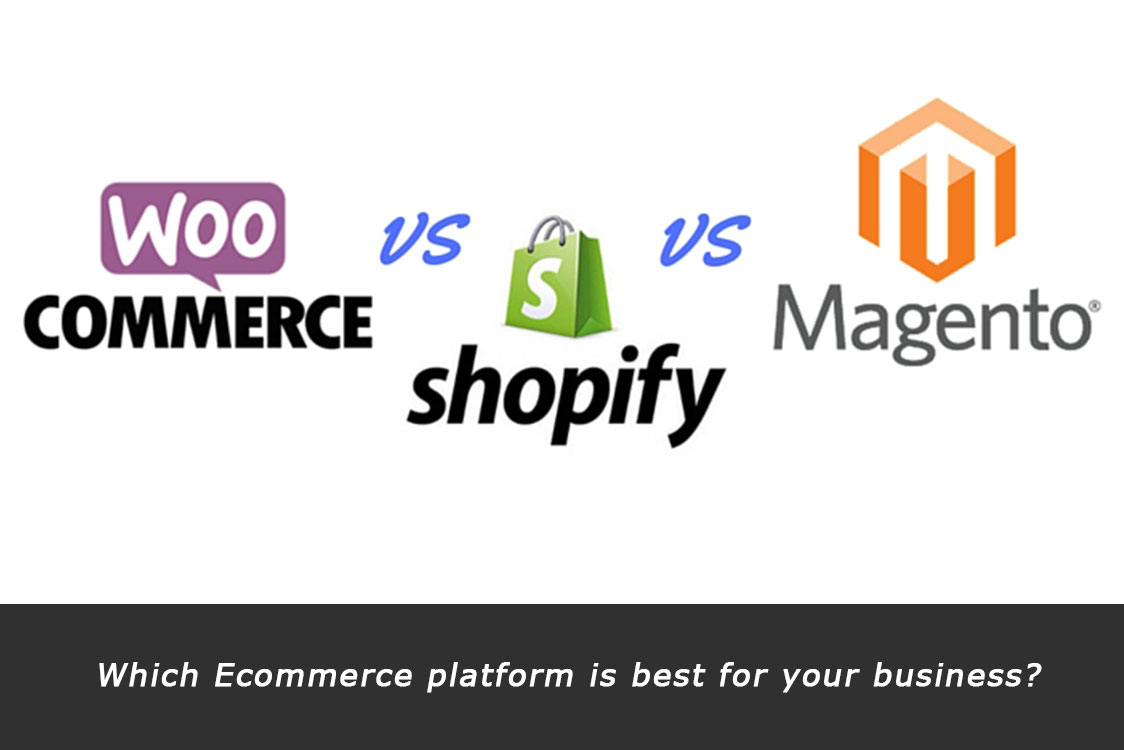Every business person expects to be smart and successful in their way to get the eCommerce platform for the development of their online store and they need to explore the finest eCommerce store development platform of very good reputation.
It’s the right time to compare Shopify, Magento, and WooCommerce based on important factors and make an informed decision to use one of these platforms.
Shopify
More than 800,000 merchants worldwide make use of this eCommerce platform. If you like to make an outstanding website and use facilities to sell, ship, and also manage products, then you can prefer and use Shopify.
Shopify is designed to give everything, especially from hosting to secure socket layer certificates for security purposes.
You can read an honest review of the reliable Shopify development company online and pay attention to important things about the best services and professional assistance offered by such a company.
The main features of Shopify are digital marketing, search engine optimization, abandoned cart recovery, multiple payment gateways, unlimited useful add-ons, and facilities to sell on modern selling channels like Pinterest, Amazon, and Facebook.
Remarkable Benefits:
- 24/7customer support via live chat, email, and phone,
- More than 100 mobile-ready storefront templates
- No coding is needed for the website creation
- Option to connect the eCommerce platform to the marketplaces of the popular social media platforms
- User-friendly admin area
Drawbacks:
- Charges transaction fee per sale
- Only 10 themes among 100+ themes are free
- Only three default product attributes.
Magento
Magento is an outstanding platform with incredible functions and a good option for anyone who seeks a platform with a free version to start their eCommerce store. Magento 2 is an enhanced version of the Magento and revamped the technology stack of the previous version for developers. Robust applications of the Magento make it very expensive to implement.
Remarkable Benefits:
- Business to Business eCommerce
- Catalog management
- Community functionality
- Core functionality
- Development talent
- Flexibility
- Integrations
- Multiple editions
- MultiStore for handling several websites on the same Magento installation
- Order management
- Scalability
Drawbacks:
- 3rd party apps may need developer time
- Bad development risks and site speed
- Complicated themes to implement
- High cost of ownership and development operations
- High learning curves
- The hosting costs are not included except for the cloud edition
- Needed for non-cloud editions
- Software updates requirement
WooCommerce
WooCommerce is an open-source and freeware plugin from successful WordPress developers. Online store web developers worldwide make use of this free solution.
Every user of WooCommerce is happy because of thousands of entirely customizable themes, simple product listing, multiple store inventories, bulk email, analytics, marketing features, plenty of built-in SEO features, and so many payment gateway options.
Many business people nowadays research the Woocommerce development services online intending to find and use one of these services based on their eCommerce platform development requirements.
The most important features of WooCommerce are the built-in blogging feature, multiple and pre-installed payment gateways, automatic tax configuration, control on the checkout process, and offers free or flat rate shipping choices.
Benefits:
- Customization without limits
- Dozens of WooThemes
- Organized and filtered reports as per the category
- Pre-installed review and rating facilities
- SEO-friendly websites
Drawbacks:
- Creation of a website on the WordPress is free however, you must pay for hosting
- Lack of customer support
- Setting up WordPress websites from scratch is a bit complex
Differences Between Shopify, Magento & WooCommerce
1. Year launched
- Shopify – 2009
- Magento – 2008
- WooCommerce-2011
2. Leading brands using the eCommerce platforms
- Shopify –MVMT, Tesla, and Badwiser
- Magento – Ford, Nike, and Coco-Cola
- WooCommerce – Spectator Shop, The Wall Street Journal, and Men’s Health
3. Advantages
- Shopify – Designed for eCommerce, easy-to-install apps, easy catalog management, simple theme setup, suitable for beginners.
- Magento – B2B eCommerce, multiple editions, flexibility, scalability, development talent, core functionality, order management
- WooCommerce – Very good content management system, full control of the code base for personalization, massive plugin choices, and no transaction fees
4. Disadvantages
- Shopify – Lack of complete flexibility, week content management system capabilities, complex to do certain things outside of the core functions and app market.
- Magento – High cost of ownership, development operations, required for non-cloud editions, and complicated themes
- WooCommerce – Requires hosting and regular updates of core software as well as plugins.
Final Words
You can research the basic and modern elements of Shopify, Magento, and WooCommerce at any time you like to clarify your doubtful things and make a good decision to make use of the best eCommerce platforms as per your requirements.
WooCommerce is a good option as it provides different benefits for every user and encourages such users to recommend it to others.
